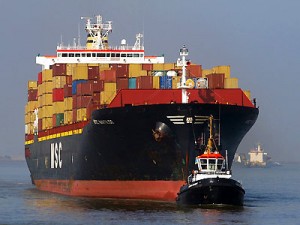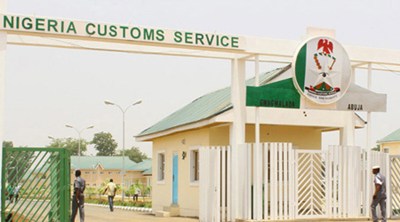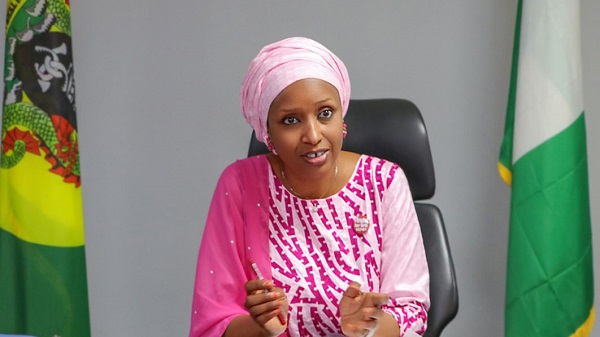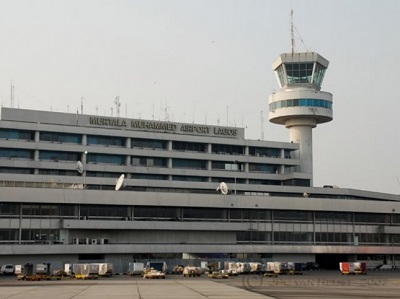NEWS LENS
Why FG Re-Introduced CTN
Facts have emerged on why the Federal Government insisted on re-introducing the Advanced Cargo Tracking Notes, called CTN, despite opposition from Manufacturers Association of Nigeria (MAN) and the multinational shipping lines who have submitted to superior reasons.
MMS Plus gathered that the Federal Government had been worried about the fast depreciating state of port infrastructure in the country and obvious lack of funds to fix them but found CTN as a veritable window of raising the needed capital to consistently bridge the infrastructure gap.
Contrary to the claim in some quarters that the Nigerian Shippers’ Council (NSC) lobbied for the re-introduction of CTN in Nigeria, the Presidency under former President Goodluck Jonathan deemed the concept expedient to solve the national port infrastructure crisis, got the Federal Executive Council(FEC) to approve and then called on the NSC to implement it in line with the dictates of the Union of African Shippers’ Council(UASC) and the United Nations Conference on Trade and Development(UNCTAD) who founded CTN in 2002 for enhanced security and safety values of ports and shippers.
Consequently, President Mohammed Buhari has since keyed into this wisdom, quashing all the blackmails and smear campaigns against the initiative by shipping lines and MAN. It was on this grounds that the Presidency under Buhari approved its take off for November, 3rd 2015 at the nation’s ports.
Findings by MMS Plus, last week, revealed that the multinational shipping lines have beaten a retreat from their stance of opposition to compliance as the registration showed that about 2000 companies, including shipping lines and shippers have been registered.
Following this, a period of one month starting from November 3rd to December 3rd has been given to all maritime stakeholders to comply with full registration.
Currently, Nigeria charges the lowest cost in CTN within the West and Central African countries. While Nigeria collects 25 dollars, N5,000 equivalent per container , the minimum charges approved by UASC and UNTAD is 60 euro, equivalent of N20,000. However, the multinational shipping companies have been collecting illegal charges of N31,700 for what they called Shipping Lines Agency Charges(SLAC) from shippers per container over the years, says a source in NSC, “yet MAN could not raise an eye brow over that until Shippers Council stopped them from doing that and they(shipping lines) went to court to challenge it, and when the court ruled against them they went ahead to appeal and still collect it,” he added.
“ Why didn’t MAN go to court to stop that that is an illegality, a clear extortion? But the CTN is a legitimate funds that guarantees security and safety of cargo and ports in line with the International Maritime Organisation(IMO) International Ship and Port Facility Security(ISPS) Code. Can you imagine! An individual is illegally collecting N31,700, but government wants to collect only N5,000, which will be used to improve ports infrastructure, which includes fixing the ports access roads and people are complaining. These are the same people who are saying that government is not doing anything concerning ports infrastructure. We have engaged the shipping companies on this and they acknowledged that we are correct,”the source noted.
Meanwhile, the National Association of Government Approved Freight Forwarders(NAGAFF) has applauded the Federal Government for re-introducing CTN platform, saying it would enhance the efficiency and security of port operations.
Speaking last week on the CTN, the founder of NAGAFF, Dr. Boniface Aniebonam, said “ the good thing about CTN now is that it attracts no cost. CTN is a global initiative put in place to monitor and verify cargoes on transit. And the initiative has the blessings of the IMO and the World Customs Organisation(WCO), which Nigeria is a member. It has a lot of security and safety values for shippers and other agencies of the government.”
To ensure a hitch-free compliance and implementation of CTN, NSC has since commenced sensitization programme for the stakeholders. On October 29, 2015, an awareness programme was organized for members of staff of NSC; November 2, for importers, exporters and freight forwarders, while another programme has been scheduled for other stakeholders such as Nigerian Ports Authority(NPA), Nigerian Maritime Administrative and Safety Agency(NIMASA), Nigeria Customs Service(NCS), National Association Of Chambers of Commerce, Industry, Mines and Agriculture(NACCIMA) in a week’s time.
CTN is mandatory for all IMO member countries. In US it is called 24-hour rule; in Europe it is known as EU Advanced Cargo Declaration; China, 24-hour Advanced Manifest Regulation;Turkey, 24-hour Advanced Manifest Regulation; Japan, 24-hour Advanced Filling Rules on Maritime Cargo Information.
In Africa, Benin, Garbon,Ivory Coast,Angola, Senegal, Guinea, among others have implemented it.
However, the grouse of MAN and shipping lines has been that it would increase the cost of doing business in the ports.
CTN was first introduced in Nigeria in 2010 and implemented through NPA but it was vehemently resisted by stakeholders due to additional high cost to shipping business. Now, it was reintroduced and given to NSC for implementation on behalf of the Federal Government via a letter with reference no. T.0160/S.30 T4C dated 14th May 2015.







